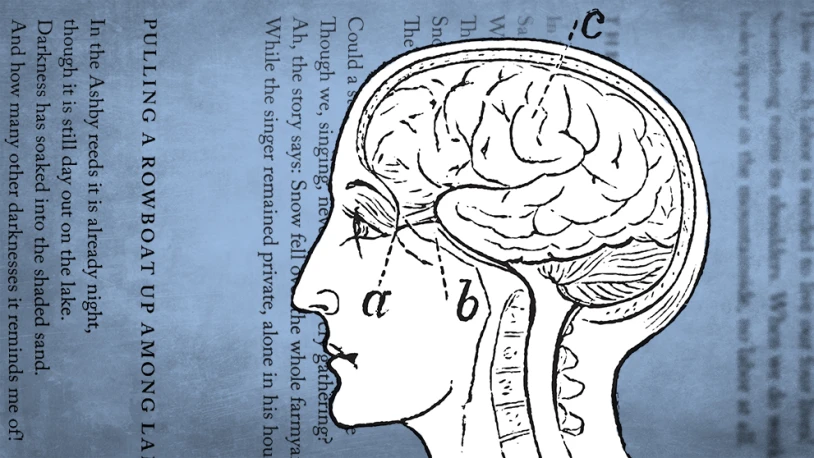In the quest for academic success, mastering effective memory techniques can be the key to unlocking your brain’s full potential.
Whether you’re cramming for an exam or aiming for long-term retention, employing the right strategies can make all the difference.
Let’s delve into some of the best memory techniques tailored specifically for studying.

Understanding Memory
Before diving into techniques, let’s take a moment to understand how memory works.
At its core, memory is the ability to encode, store, and retrieve information.
It involves various cognitive processes, including attention, encoding, consolidation, and retrieval.
By leveraging these processes effectively, we can enhance our ability to remember information.
Chunking: Organizing Information
One powerful technique for improving memory is chunking.
Chunking involves breaking down information into smaller, manageable units or “chunks.”
By organizing information into meaningful groups, such as grouping numbers or letters, we can improve our ability to remember them.
For example, instead of trying to remember a string of numbers like 7819462051, we can chunk them into smaller groups like 781-946-2051, making it easier to recall.
Visualization: Creating Mental Images
Another effective memory technique is visualization.
Our brains are highly adept at processing visual information, so harnessing the power of mental imagery can significantly aid memory retention.
When studying, try to visualize the concepts or information you’re trying to remember.
Create vivid mental images or associations that help reinforce the material.
For instance, if you’re studying the solar system, imagine yourself exploring each planet in detail.
Mnemonics: Memory Aids
Mnemonics are memory aids or techniques that help facilitate recall by creating associations between new information and existing knowledge.
These can take various forms, such as acronyms, rhymes, or vivid stories.
For example, to remember the order of the planets in our solar system (Mercury, Venus, Earth, Mars, Jupiter, Saturn, Uranus, Neptune), you might use the mnemonic “My Very Educated Mother Just Served Us Noodles.”

Spaced Repetition: Optimal Learning
Spaced repetition is a learning technique that involves reviewing material at increasing intervals over time.
Rather than cramming all your studying into one session, spaced repetition distributes learning across multiple sessions, allowing for better retention over the long term.
Tools like flashcards or spaced repetition software can help facilitate this method by scheduling review sessions based on your performance.
Active Recall: Testing Yourself
Active recall is a powerful learning technique that involves actively retrieving information from memory rather than passively reviewing it.
This can be done through self-quizzing, flashcards, or summarizing key concepts without looking at your notes.
By actively engaging with the material, you strengthen your memory retrieval pathways, leading to better long-term retention.
Interleaved Practice: Mixing It Up
Interleaved practice involves mixing different topics or types of problems during study sessions rather than focusing on one topic at a time.
This technique challenges your brain to make connections between different concepts, leading to deeper learning and improved retention.
For example, if you’re studying mathematics, instead of doing all the algebra problems first and then moving on to geometry, mix them up to enhance learning.
Conclusion
In conclusion, mastering effective memory techniques can significantly enhance your studying efforts and improve academic performance.
By incorporating strategies such as chunking, visualization, mnemonics, spaced repetition, active recall, and interleaved practice, you can unleash your brain’s full potential and optimize your learning experience.

FAQs (Frequently Asked Questions)
1. How long does it take to see results from using memory techniques?
Results can vary depending on the individual and the techniques used.
However, with consistent practice, you may start to notice improvements in your memory retention within a few weeks.
2. Are memory techniques only useful for academic studying?
While memory techniques are often associated with academic studying, they can be beneficial for various aspects of life, including professional development, learning new skills, and even personal growth.
3. Can anyone learn to use memory techniques effectively?
Yes, memory techniques are skills that can be learned and improved with practice.
Regardless of age or background, anyone can benefit from incorporating these techniques into their study routine.
4. Are there any downsides to using memory techniques?
While memory techniques can be highly effective, they may not work equally well for everyone.
It’s essential to experiment with different techniques and find what works best for you.
Additionally, some techniques may require more time and effort to master initially.
5. How can I stay motivated to continue using memory techniques?
Setting specific goals, tracking your progress, and celebrating small victories can help maintain motivation.
Additionally, reminding yourself of the benefits of improved memory, such as better academic performance or increased productivity, can keep you focused on your learning journey.
